So you found yourself here. Let me just start by saying I’m sorry that you’re reading this article if you or someone you love has had a heart attack, but I hope that you find the contents useful. I’ve tried my best to break down the 30 things that made caring for my husband a little easier so you will have a list of what may help you.
This post contains affiliate links. All the items that are listed have been tested and purchased by me. I get commissions for purchases made through links in this post.
I decided to write this post because I couldn’t find anything online to help me as a caregiver. The kind of guidance or ideas on what I should have on hand or what I may need to take care of my husband and myself while he was in the hospital and during his recovery. There are articles and posts from the heart association and hospitals but I was looking for something more “real life.”
My husband had a widows maker heart attack on February 19, 2022. He was one of the lucky 47% that survived that sort of heart attack and with it came a lot of questions, concerns, fears, anger, and anxiety. He then spent the better part of the next three months in and out of the hospital with a blood clot and pericarditis.
All of the hospital stays were in the ICU and admitted through the emergency room. Having these items on hand in a go bag made the situation a bit more tolerable and easy for us.
This is in no way medical advice I am not a medical doctor if you’re experiencing a medical emergency call 911 and get yourself to the hospital immediately.
30 items I found useful for myself and my husband after his heart attack:
Bracelets for his angiogram arm:
After my husband had two angioplasties in the same arm I wanted to make sure that he was reminded of which arm it was when he was at home. So I bought him some cheap cute little bracelets that were just an official reminder for both of us which arm he had them in.
These came in extremely handy because unfortunately, he developed a blood clot in that arm which caused him additional pain, and having the bracelets there was an extra reminder for me to watch out for his arm.
Something to carry nitroglycerin in my purse:
Everything I found to carry nitroglycerin was either bulky or ugly so I made my own carrier. Let me know if you want to know how to make this carrier and I will do a full DIY here on my blog.
Free printable medication tracker:
I created this medication list initially for my father-in-law after he started his dialysis treatments. But it soon came in very handy for my husband and his medications. I hope it comes in useful for you as well. Free printable weekly medication tracker – click here –
Scale:
After a heart attack, doctors want to follow each patient’s weight very closely. Gaining water weight is an indication of heart failure. Having a good scale on hand when they get home from the hospital is necessary.
Rubbing alcohol or witch hazel:
More than likely you or the person that you’re caring for has had multiple echocardiograms and multiple EKGs and therefore have a lot of sticky residue from the leads from these tests. I found the best way to quickly remove the residue it’s just with a little bit of rubbing alcohol or witch hazel after showering.
Medications cups:
My husband now has to take multiple medications at different times daily. We wanted to make sure he had an easy way to get the medication from the caddy to his mouth. Some of his new medications were tiny! So I purchased some stainless steel condiment cups and they’ve worked out perfectly and are of course eco-friendly and dishwasher safe.
Medications caddy:
Make sure you purchase a medication caddy that works well for whatever dosing that you are gonna need throughout the day. My husband only needs medications in the morning and at night so I just need a simple caddy that would be able to separate that medication for morning and night dosages.
Wedge Pillow:
After spending so much time in the ICU my husband got accustomed to sleeping at a slight incline. I also found that it was easier for him initially to get in and out of bed and he seemed to breathe a little better at an incline.
Blood pressure cuff:
There’s such a vast majority of blood pressure cuffs available on Amazon. I made sure I read the reviews on dozens of these and found a few that seemed to work out well. Generally, the cuff that goes on your wrist is not as good per our cardiology group and our primary care physician.
Whatever cuff that you end up choosing you should bring it with you at the first cardiology appointment or when you’re seeing your doctor so that you can ensure that the readings are within about two points from what the doctor’s office is recording. You want to make sure that you have a very accurate reading so that you can report out to your physicians the current and or cardiology group so they can track your heart rate.
Apple Watch 7:
I will admit this is a huge splurge and if you don’t have the money don’t even worry about this one. I wanted extra peace of mind for myself when my husband was away from me so I could see his vitals.
Yes, I know that that is very extra and probably unnecessary but for me, it gives me a little bit of peace of mind. I purchased him the newest iteration of the Apple Watch it can take an ECG which monitors your heart in the way that it is beating. This came into great use when five weeks after my husband‘s heart attack he started having chest pains and was sent back into the hospital again and admitted to the cardiac ICU with pericarditis.
Humidifier:
We found that a majority of the medications were causing my husband to have a dry mouth and nose. Adding a humidifier to our room has significantly improved his quality of sleep.
Comfy sweat pants and shirts:
Comfy sweats are a great idea any day of the week. But especially when you are in distress and you need to quickly get on some clothing and hop in the car and get to the emergency room or if you’re sitting at home in recovery it’s great to have comfortable relaxing clothes. Also, my husband has run Hot his entire life! He would live in Alaska and be happy if it was 40° every single day. But unfortunately, since his heart attack and all of the additional medication‘s now that he is taking he is freezing all the time. So having a great comfy set of sweats has been amazing.
Easy listening music:
Having a relaxing chill-out music list for me as the caregiver has been invaluable. When I come home at night from the hospital alone and I’m trying to decompress the last thing I want to listen to is the news. I created this list of songs and artists that are just chill. Feel free to check it out it’s on Spotify you can get a free trial or even I believe a free use of it try it out sit and relax and just decompress.
App to keep track of appointments:
You are going to be making tons of doctor’s appointments in the next few weeks after your heart attack or caring for a heart attack victim. I found an app that I love, and I can share with multiple people it’s called TimeTree. The app is free and easy to use and I can share it with people who have Apple iPhones as well as androids.
Medical savings cards:
Pharmaceuticals suck! They are outrageously expensive. And of course, the ones that work the best or the most expensive.
In comes the medical savings cards. Most of these are actually from the manufacturers of said pharmaceuticals. They are invaluable. Which I find to be abhorrent. But an unfortunate necessity so I do recommend quickly doing your research when you find out what your loved one or family member is going to be taking and applying for them for the medical savings cards for Plavix, Jardience in Entresto, and the like.
Time:
I wish there was some way to give time. But you need to take time. You need time for yourself as a caregiver to reset, and let your mind clear so you are able to listen, absorb information, and ask good questions.
If people are offering to help you let them! You and your loved one are going to need time to recover.
It is going to take time for them to heal physically, mentally, emotionally, and spiritually. Their mortality is at risk and it is absolutely terrifying when you are met face-to-face with it. Even if you’re prepared you do not realize how drastically it can change your view of the world in a blink of an eye. So be easy with yourself take a step back and realize that you and the person who is experiencing the heart attack need time.
The worst part of this entire ordeal is that YOU are living this every day. Even the most well-intentioned and loving people forget that. Just because it’s been a month, 6 months, or even a year recovery is long and hard. Others that are not living this daily forget what you are going through and it can at times seem lonely. I have admittedly gotten angry and bitter on occasion.
Easy meals:
You need to make sure you have easy meals for yourself and your heart attack survivor. I think I lived the first three weeks on soup dumplings that I purchased from Costco that I popped in the microwave and ate at midnight before taking a two-hour nap and going back to the hospital.
You will be tempted to go out and buy all the low-sodium things you can find! There are going to be so many new guidelines on what you can prepare so refrain from the knee-jerk reaction to go out and purchase hundreds of dollars worth of food.
Unfortunately, in my husband‘s case, his entire taste and desire for food have changed post heart attack. Things that he once craved and desired are no longer palatable for him and things that he found boring he now craves. So again you’re gonna have to kind of take this one step-by-step and learn together what their new normal is.
Thermometer:
I believe it may be safe to say that every household since the pandemic started owns a thermometer. But if by some chance you do not have one it’s a great time to purchase a thermometer.
For my husband‘s heart attack they performed two angioplasties and placed two stents in his LAD artery. I wanted to monitor him for a week post-discharge from the hospital to make sure that he wasn’t having any fluctuations in temperature which could be an indication of infection.
Good bag:
I was not too sure that I would even need a bag until we had been in the cardiac ICU three times in six weeks. My best friend purchased a travel bag for me for my birthday a couple of years ago which has quickly become my favorite bag.
If you have a handy travel bag or tote already that you love stick with it! I recommend this one if you don’t, it’s a great travel bag alone but it is super easy to pack with the necessities that you and the heart attack victim will be needed while they are in the hospital, and at this point, I have it pre-packed with a few items as a go bag.
File folders:
Generally speaking, I am not the most organized person in the world. I purchased this set of file folders a few years ago when I started my Etsy shops hoping that I would be very organized with my purchases and receipts. That was not the case. However, now that my husband has so many appointments and information coming in from the insurance companies and pharmaceutical companies I decided this was the best time and the best use I could have ever had out of these beautiful file folders.
I am trying to keep track of all of his post-op instructions, follow-up appointments, receipts for his medication, and instructions for the medication. And if your family friend or significant other is working you may end up having to file for FMLA or your state’s leave act and I’ve also kept all of that information in this folder as well.
Good hairbands:
Okay so this may be gross, but the week of my husband‘s heart attack I did not take a shower. I was in the hospital all day until very late at night would leave the hospital come home eat a quick microwaved meal go to sleep for a few hours and wake up and repeat the process over again. My hair was a greasy nightmare. So for me having a really good set of athletic thick hair bands was amazing and 100% necessary and worth every penny.
Support Group:
This one is hard. I am hoping and praying that you already have a great support group of family, friends, church members, coworkers, or just people in your life that care about you and the person that you’re caring for. I am unbelievably blessed to have beautiful loving caring people in my life. I fully believe that I was sustained throughout this entire situation by the love of those who surround me and the prayers and support that were given to my husband and me during this time.
Having a support system is an absolute non-negotiable item on this list. If you don’t have a support group already there are plenty of support groups that you can look up online. Even having just one person who can help you shop is super helpful.
Poop spray:
So for those of you that may know my husband please do not let him know that I put this on here because he will be so mad! LOL.
In the cardiac ICU unit here in Portland there are no doors on the bathrooms, which I imagine may be the case in most ICU units. This makes sense, nurses have to get to people who may have fallen in the bathroom. I believe bathroom falls are half of all falls in the hospital. But for my husband who is very very self-conscious about bathroom usage, this was his worst nightmare!
Those of you who have followed the blog for some time now know that I make my own poop spray it’s all natural it works amazing and it is a must-have whenever we go out. I did not realize that this was a necessity for a hospital stay but I will tell you right now it is 100% a necessity in our family. You can find the link to make your own poop spray or you can purchase it on Amazon. There are also great options on Etsy. Mine is all natural and it is safe for septic and sewer systems.
Compression socks:
You are going to sit. You are going to sit for longer than it takes to fly halfway across the world to visit another country!
Having compression socks is vital for your health at this point. I had several days where my ankles were swollen and hanging over the tops of my shoes. And don’t worry my heart is perfectly fine and in great working order and I still have this issue. I did bring it up with my primary care doctor and the cardiologist that was seeing my husband and they all said the same thing that it’s because I am sitting at the hospital in a horribly uncomfortable chair for days and days. So if you have a set of compression socks I would say you better use them and use them now.
Blue tooth headphones:
Having a good set of Bluetooth headphones that have the ability for you to take calls was a real must-have for my husband. It may not seem like an important necessity but for my husband who was unable to use both his arms, it was great to have a “hands-free” option so he could easily make and receive calls on his own.
Personally, I wouldn’t recommend having the Apple AirPods because they are not always easy to use and if somebody is ill and has to constantly mess around to push the earbuds in then it’s kind of a moot point. My husband has a Black Friday beats over the ear earbuds which are featured here. They worked out beautifully and have come in so handy even at home when he is unable to hold his phone to have a conversation with his office or our family and friends.
Long charging cord for your phone:
Having a long charging cord is great for the hospital as well because generally the outlets are fairly far from the bed and if your family or friend is unable to get out of the bed because of restrictions having a long cord is going to be important for them to have access to their phone while they are laying in bed.
Small battery bank:
We travel quite extensively and have mini power banks. I love my large power bank but it is quite heavy and not ideal to take to the hospital. But having a small portable power bank that can charge your phone is super important if you are going to have multiple hospital stays as my husband had. I try to keep a fully charged power bank in my purse at all times so that I have very quick access to charging my phone because I don’t carry a phone charger and cord with me at all times.
Car go-bag:
So my husband laughed at me when I suggested making a go-bag for the hospital after he was released from his initial heart attack. But I set up a go bag anyways and we had to use it not even a week later when he was readmitted to the hospital for a blood clot in his arm. And then alas we had to use it a second time when he was readmitted for pericarditis a week after that.
In the go bag, I leave a set of socks, underwear, a few breakfast bars kind bars, roll-on deodorant, toothbrush and toothpaste, a set of sweatshirts and sweatpants, a phone charger with a long phone cord, And poop spray. These are just a few small essentials that I have found to be invaluable.
List of questions for the doctors:
You are going to have so many questions and concerns after the diagnosis of a heart attack after they tell you what type of treatment they’re recommending after the person has been discharged from the hospital after changes in medication and after doctor’s appointments.
I keep a running list of questions or concerns I have on my phone in my notes so that they are always there and I have a reference.
The amount of information that you were going to be given is going to be overwhelming and you will forget things and that is OK. To make it easy on yourself and whoever you’re trying to take care of it is best just to start keeping a list and deleting things as you were able to ask providers.
Had I not been keeping a list of questions and concerns and medication I would have completely missed the fact that while he was in the hospital for his pericarditis he was not given an anti-inflammatory specific to helping with the inflammation of the sack around his heart. Thankfully I kept a very good list as I was reviewing it post-hospital stay. I mentioned it to the cardiologists at his follow-up appointment and sure enough, he was supposed to have this medication and was not given it. At the end of the day, you are an advocate for that person. So keeping a clear concise list of things that you think of is very very important.
I am sending love and hugs to you if you’re experiencing the aftercare of a heart attack. It’s been 5 months since he had his heart attack and the mental emotional and physical trials are daily but they’re getting better. Hang in there, you can do this.









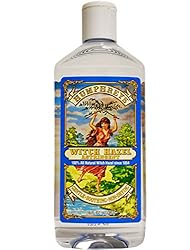

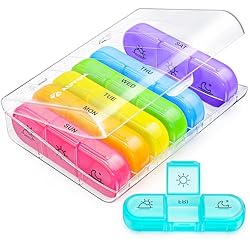
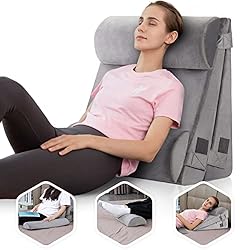













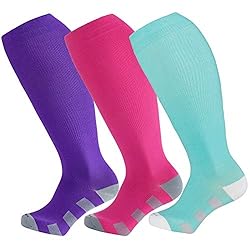


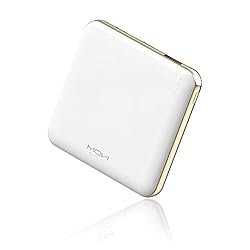




What a great list of things to use and do.
Amazing list, and so glad he is doing better! Sending this on to my siblings in case they didn’t see it. Keeping you both in my heart!
Would also love the instructions to the pill bottle holder when you have time!
Melissa,
What a gift you’ve given us with this wonderful list. And having been through a few hospital stays (though fortunately none as serious as your husband’s), I can tell you this is great advice for anyone landing in our healthcare maze. Many thanks for taking the time to put it together for us!
Cordially,
Dave
PS, Please pass on my love to your mom and dad!
Hi cousin David! Thank you so much for reading my post. I will pass your love on!
Hello,
I am wondering if you have any low sodium/zero sodium recipes that you could share with me. My grandpa in law had a widow maker November 2023. We are struggling to find anything he can eat. He swells a lot when eating sodium.
Hi Madison! First off thank you for reaching out. I totally understand the frustration of finding meals that heart attack survivors can eat and that actually taste good. I honestly cook almost everything the same with drastic changes. I limit the TOTAL amount of sodium for the day to between 1800-2000 mg of sodium, that means that I have to be actually looking at every single nutritional information and also adding for the fresh ingredients sodium intake. I wish there was an easier way but there simply isn’t. In our household we eat about 80% Cambodian food because my husband is Cambodian. I no longer use soy sauce or fish sauce, instead I use brags amino. These have been a game changer for us. It sound like your Grand father-in-law may also have some kidney issues (my father in law is on dialysis and also a heart patient) Maybe try to follow the dialysis diet as it is super low sodium and kidney friendly? I am not a doctor and am just offering you some lived observations. There are thousands of great low/no sodium recipes on Pinterest. I think I have a board on there that is for heart patients. You can find the link to my Pinterest where the social icons are on the top of bottom of each post. Wishing a speedy and easy recovery!